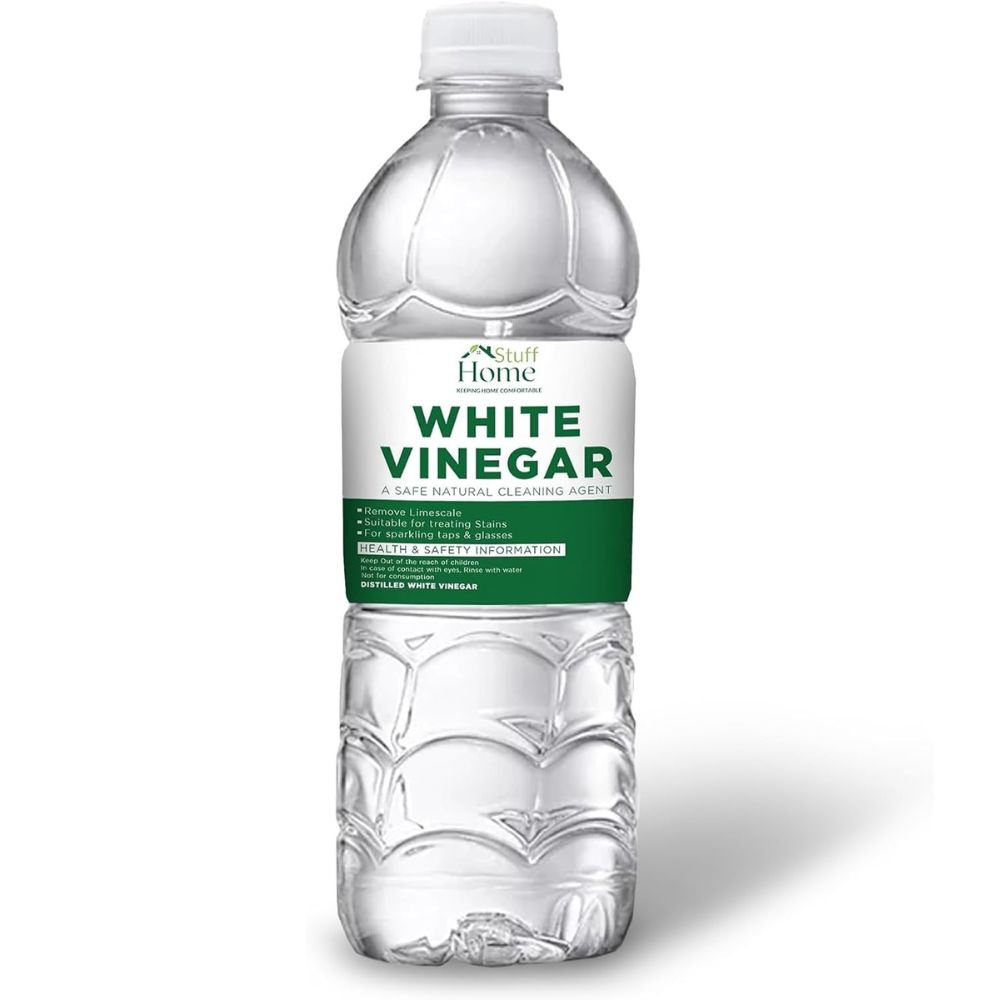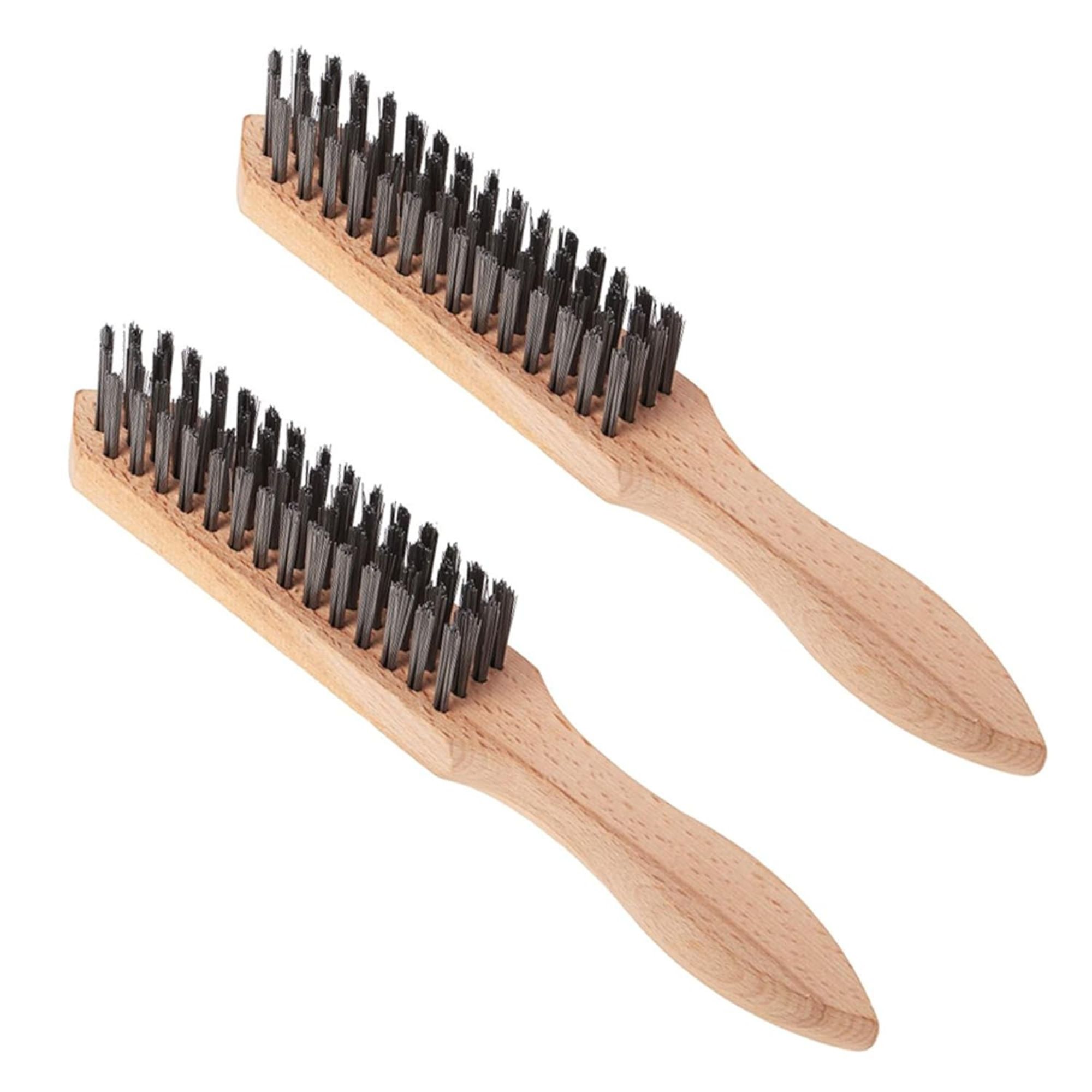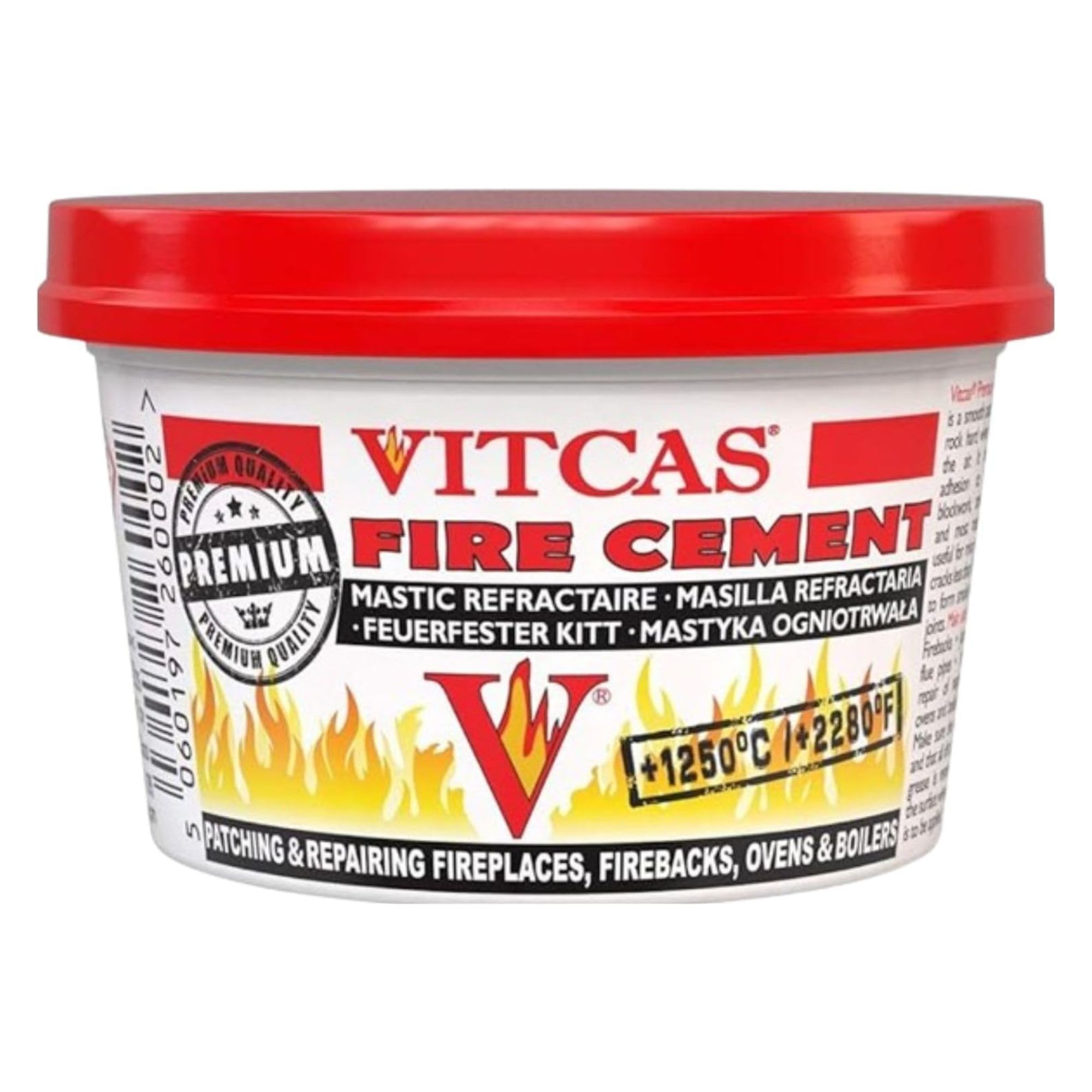How to clean a chiminea: 5 expert steps for a soot-free clean
It's time to get your chiminea prepped for those relaxing summer nights by the fire, whether cast iron or clay we have it covered
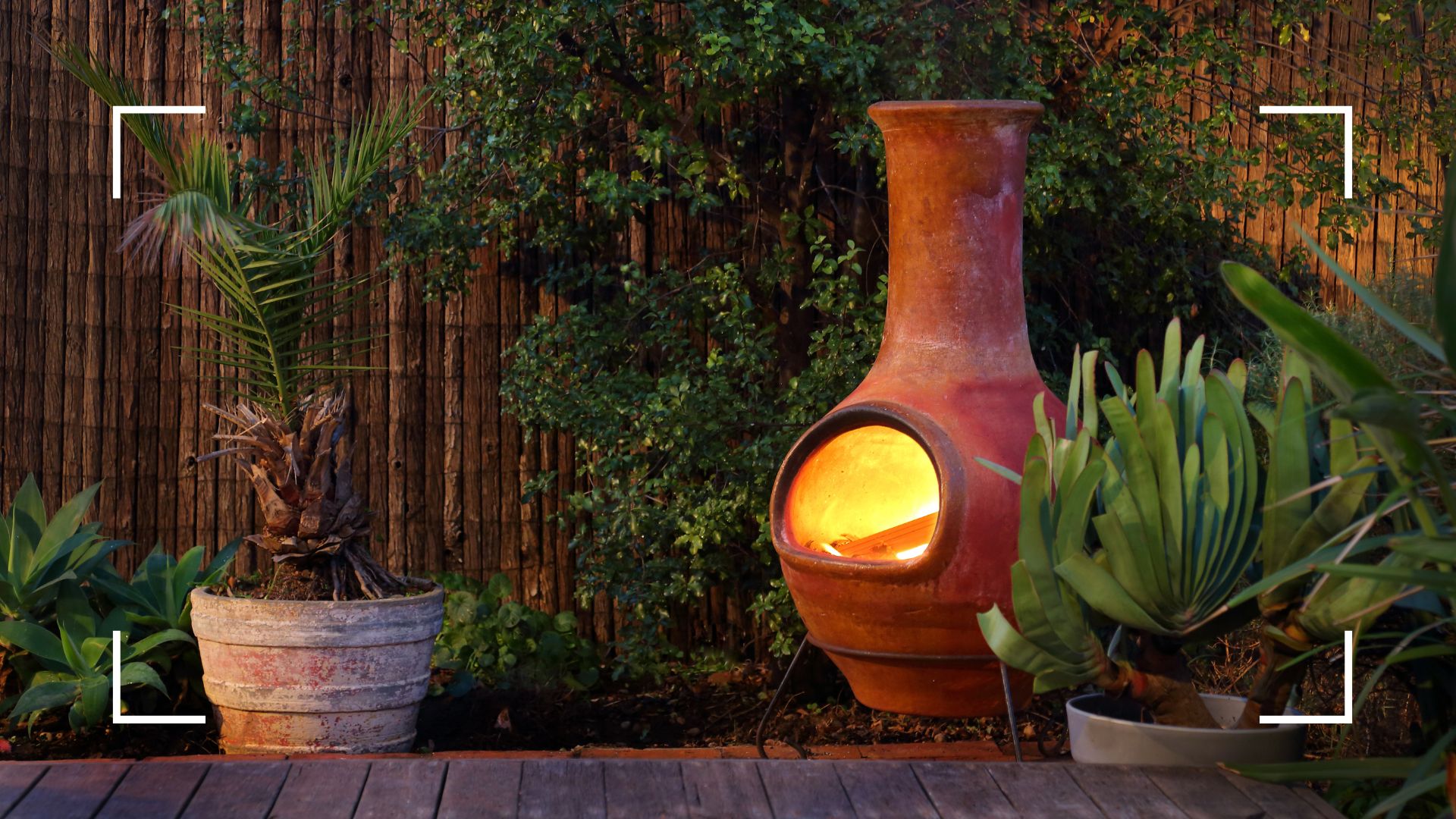

Those delightful summer evenings are finally here and with them the opportunity to get the most out of our garden chiminea. So what better time to give it a clean and prep it for a warm season ahead?
Knowing how to clean patio slabs and how to properly clean your pizza oven ahead of summer, is important prep that allows you to take as much advantage of the sun to entertain as much as possible. Another good task to add to your outdoor cleaning checklist is your chiminea, after all, who wants to be met with a sooty dull-looking heating solution?
To avoid the disappointment of a lacklustre evening fire, we asked cleaning experts how to clean a chiminea and keep it ready for any spontaneous late-night garden parties.
How to clean a Cast Iron chiminea
If you prefer the quiet luxury look in your garden, then you might have a cast iron chiminea instead of a clay one. Not only do they give a more elevated look, but they're also much easier to maintain in the long run to as they don't run a risk of cracking.
Here's what you'll need...
- Wire brush
- Bucket of water
- Small shovel or ash scoop
- White vinegar
- Cleaning cloths
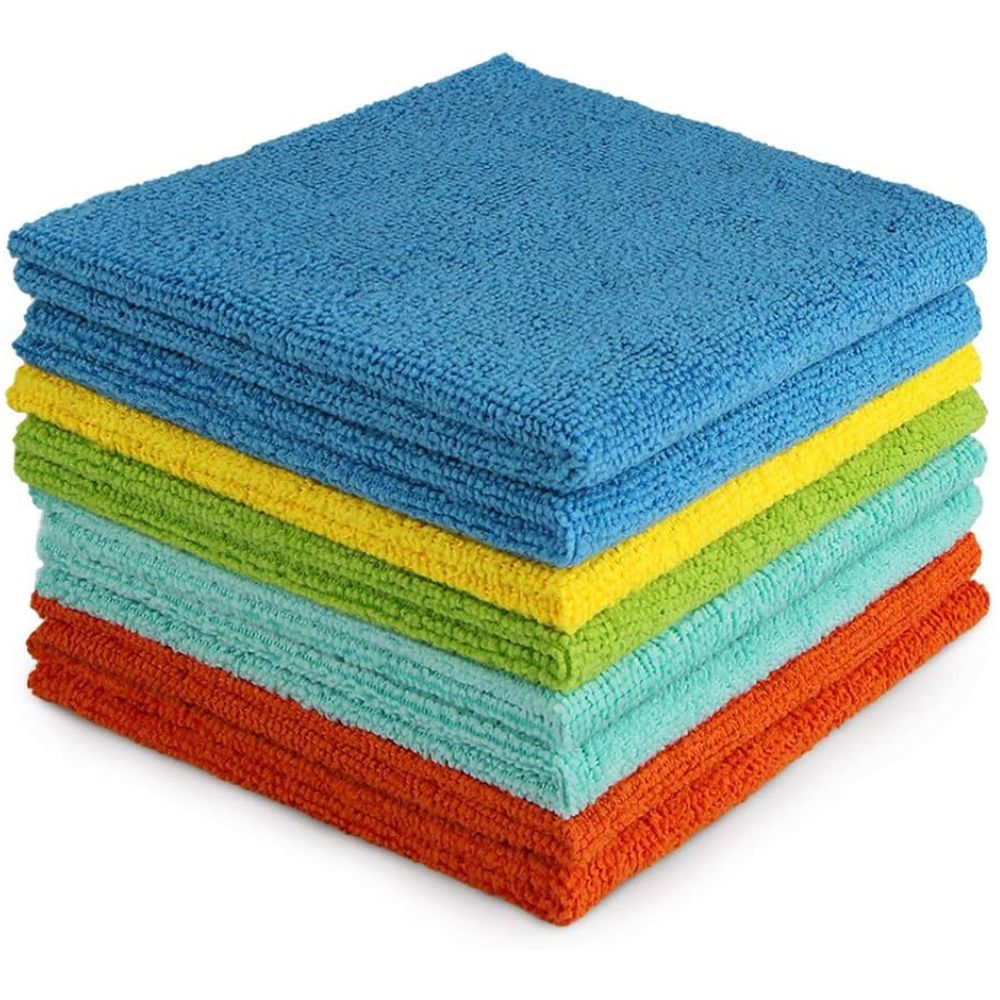
RRP: £4.99 | Microfibre clothes are the hero product every cleaner should have in their kit, to tackle all manner of cleaning tasks. When it comes to cleaning your cast iron chimenea this cloth is ideal for gentle drying.
1. Remove gravel and ash
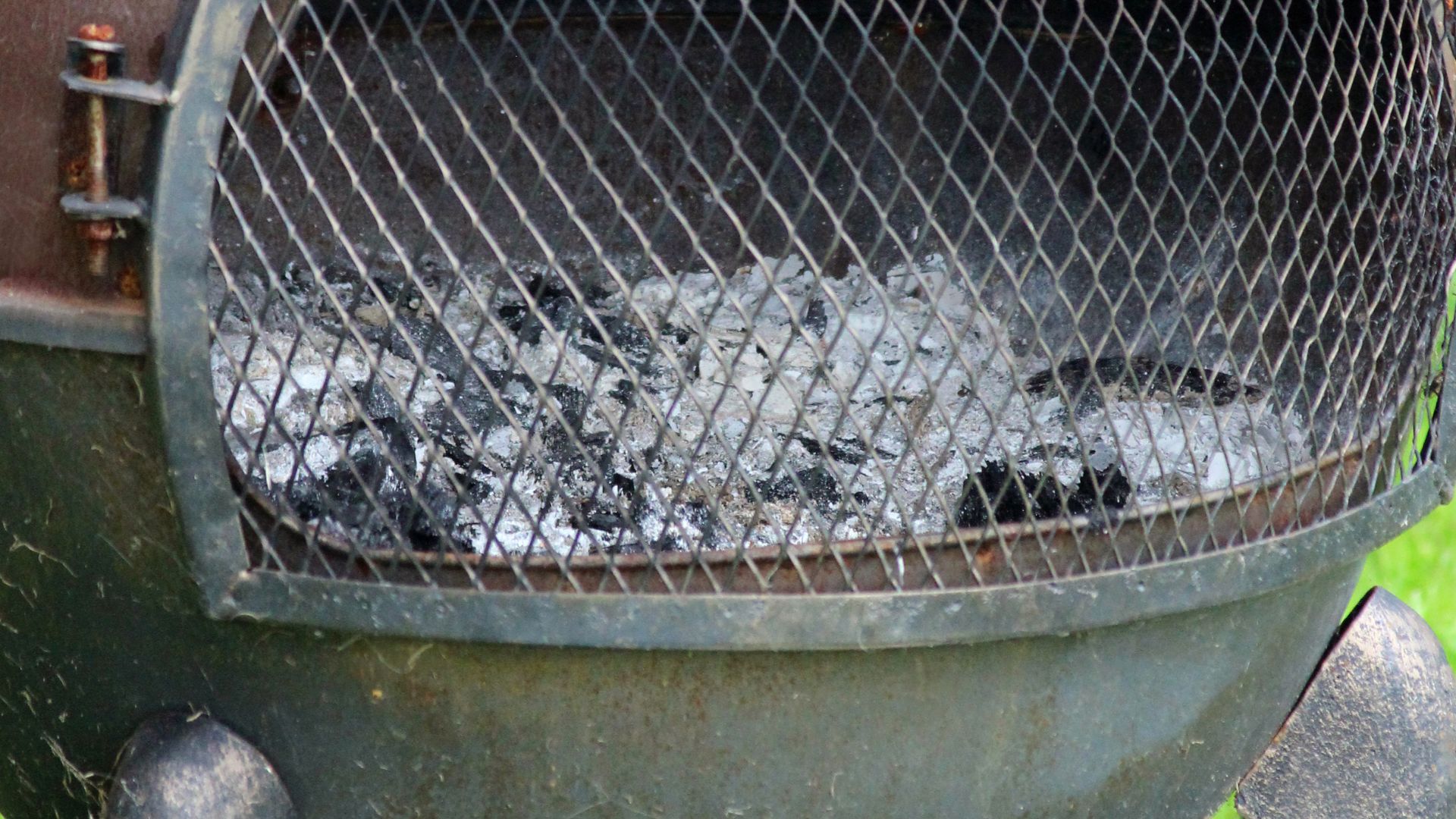
Whether you've filled the bottom of your chiminea with sand or gravel, it's important to remove this only when the chiminea is completely cooled. Even when you think it's cool, still be careful and take all precautions as the gravel may still have retained the heat.
"You firstly need to remove the gravel that should be lining the base of your chiminea and sweep out any ash from the firebox using a small shovel and brush," says cleaning expert at Smol, Catherine Green.
Sign up for the woman&home newsletter
Sign up to our free daily email for the latest royal and entertainment news, interesting opinion, expert advice on styling and beauty trends, and no-nonsense guides to the health and wellness questions you want answered.
If you've used gravel as a lining, then Catherine also recommends rinsing this whilst you're cleaning, it'll get rid of any remaining dirt that could damage your chiminea. Why not use the ash in your garden as a fertiliser for your plants?
2. Scrub the interior
As a chiminea is certainly one of the things you should never use a pressure washer in your garden, you'll want to make sure you have a good quality wire brush. With cast iron, you can use more rigorous cleaning tools as it's considerably more hard-wearing than clay or terracotta alternatives.
Catherine says, "Use a wire brush to scrub the interior and exterior surfaces. For tough rust stains, mix equal parts white vinegar and water, apply it to the affected areas, and scrub with a wire brush."
Cleaning with vinegar is a great way of achieving a thorough clean without using harmful chemicals, after all, you want to be careful what you're using on your chiminea when it'll be housing flames.
3. Rinse and dry
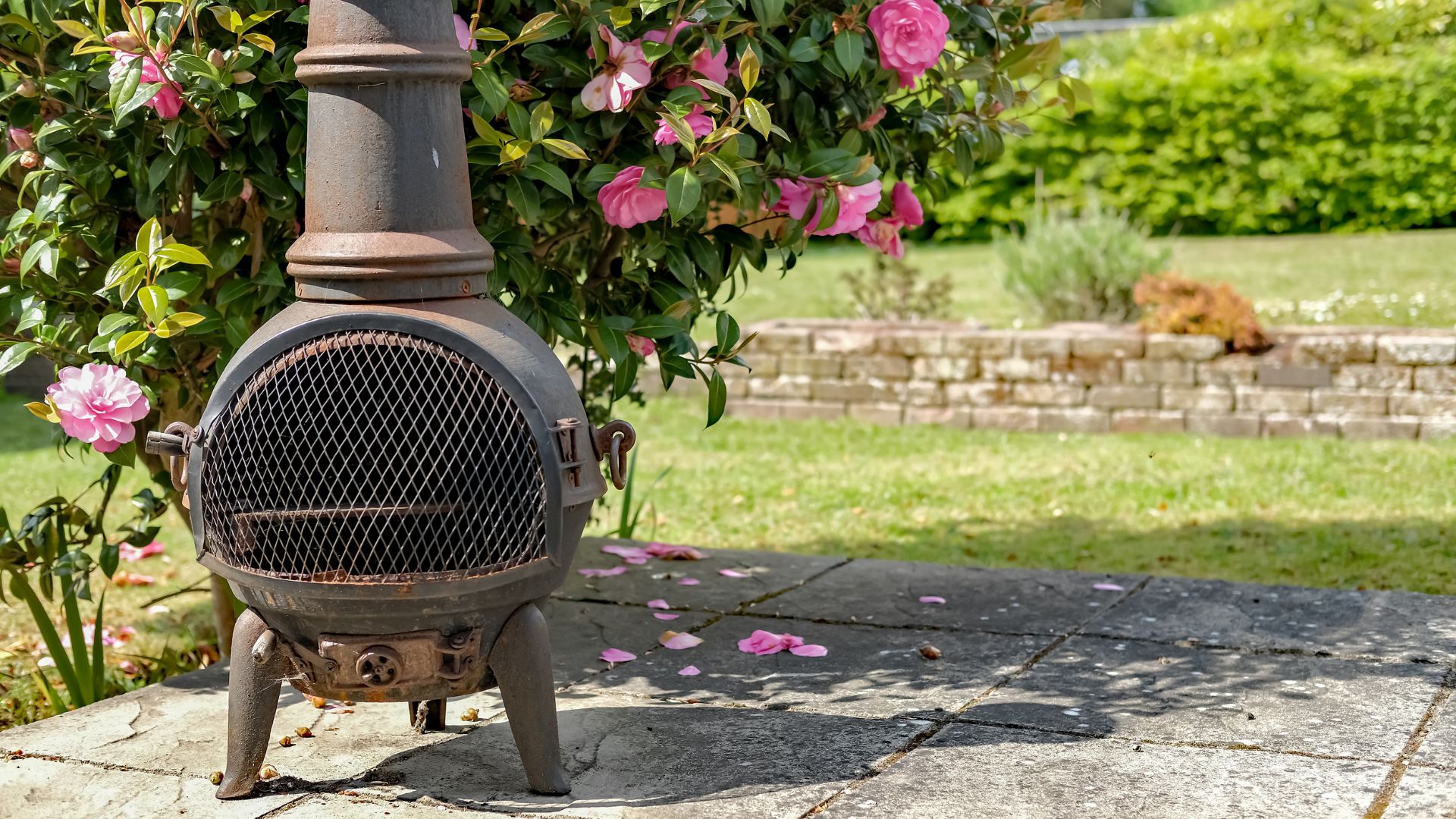
When you're done with scrubbing both the inside and outside of your chiminea it's time to give it a good rinse. Catherine recommends simply hosing it down with clean water to ensure all the cleaning solution has been washed away.
After that ensure you've dried it completely using a microfibre cloth.
4. Return gravel
Now you've dried the chiminea as much as possible, it's time to return your gravel or sand to the bottom of it. If you washed your gravel then this is a great opportunity to use old towels in your garden and give the gravel a dry before returning it.
Catherine is quick to stress that even after you've returned the dry gravel to the chiminea, allow more time for the interior to dry before starting any fires.
5. Oil
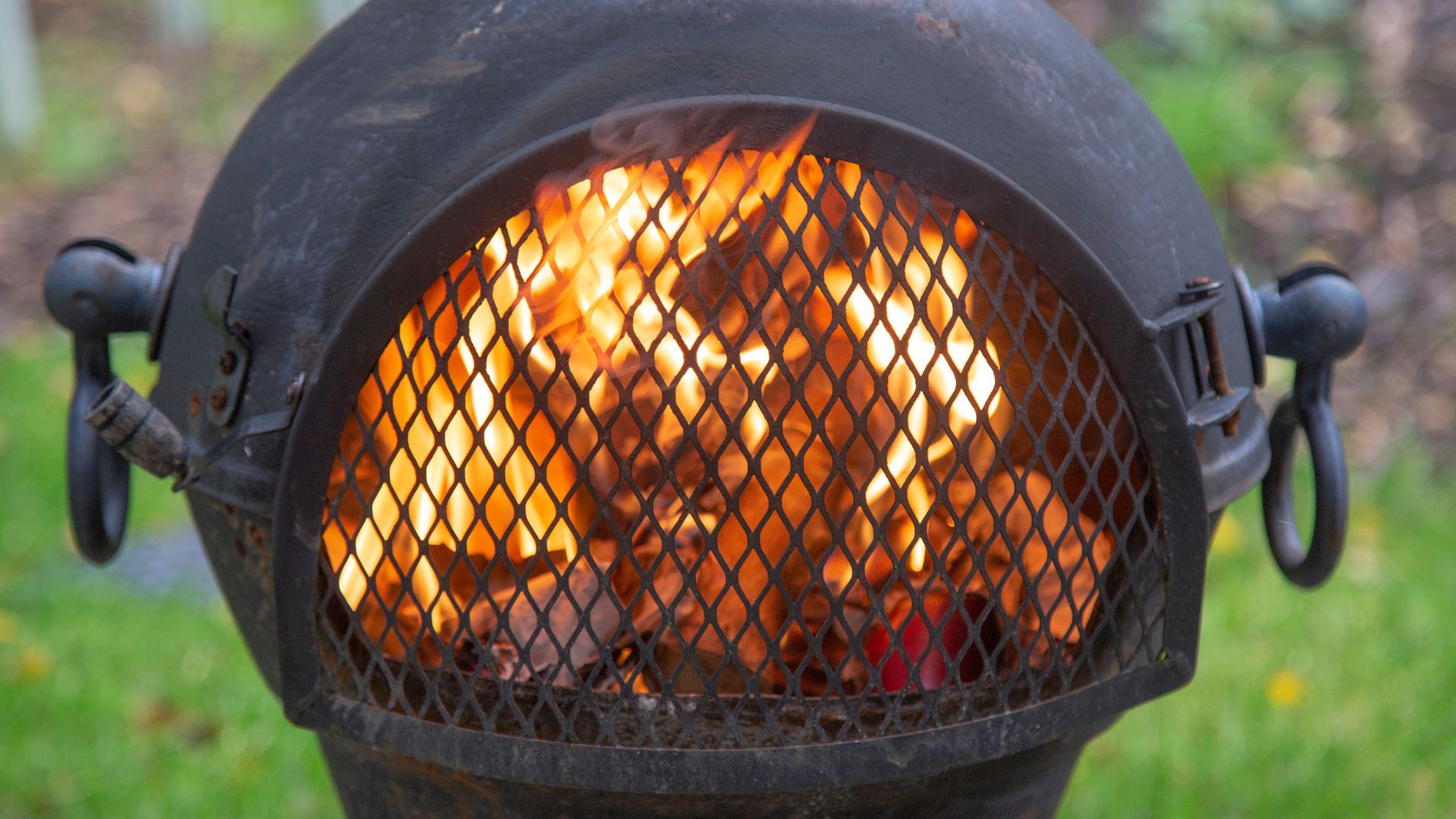
Should you want to take the cleaning even further then Catherine recommends an extra step that will help with preventing any additional rusting in the future.
"To prevent future rusting, apply a thin layer of cooking oil to the entire surface of the chimenea when it's completely dry. This can help protect the cast iron from moisture and rust, extending its lifespan," she explains.
How to clean a clay chiminea
Clay or terracotta chimineas are a great way of turning your garden into a Mediterranean paradise. They add a warm pop of colour to your space but there is a little more effort needed for maintaining them.
Here's what you'll need to clean one...
- Small shovel and brush
- Soft brush
- Cloths
- Wire brush (optional)
- Mild dish soap (optional)
- Clay repair kit (optional)
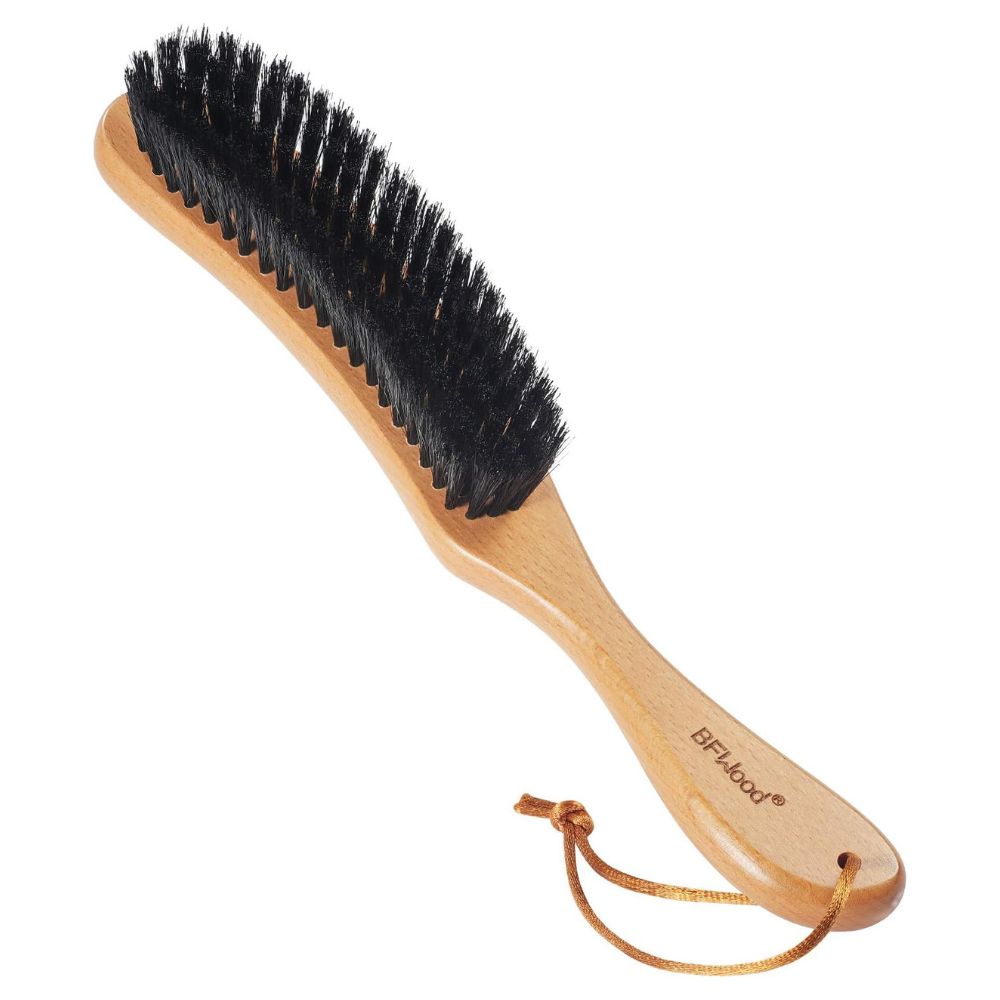
RRP: £12.98 | This boar bristle brush is the perfect tool for cleaning your clay chiminea, with the soft bristles it will effectively dislodge any dirt and dust without damaging the clay exterior.

RRP: £4.99 | Microfibre clothes are the hero product every cleaner should have in their kit, to tackle all manner of cleaning tasks. This eight-pack will make any clean-up job that much easier and having more than one on hand will have you prepared for even the messiest of jobs.
1. Remove debris
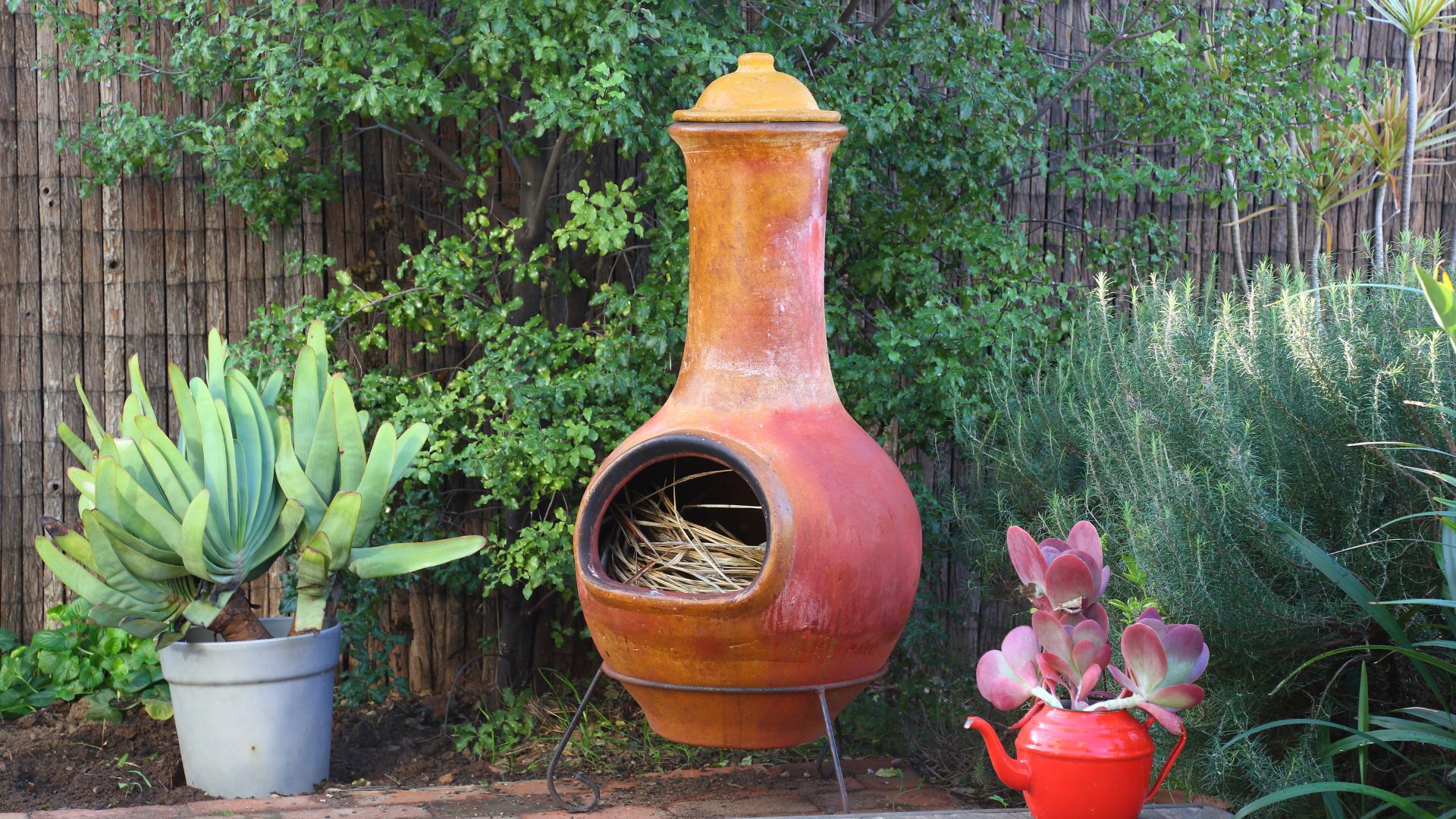
As with any cleaning job, removing the larger dirt and debris before you can tackle smaller stains is always the way to start. Even when cleaning your outdoor wooden furniture, removing the bulk of the dirt first makes the whole process so much easier.
Fantastic Services cleaning expert Polya Petrova, says, "Remove any ash and other debris after every time you use your chiminea. Before you do that, allow it to cool completely and only then, carefully remove what’s left inside the firebox using a small shovel or brush to avoid hurting yourself."
Dispose of the ash but keep in mind it can still be quite hot even after the chiminea has supposedly cooled down.
2. Inspect for damage
Similar to how you clean a terracotta pot and check for hidden cracks, now is a good time to inspect your chiminea for any damage. Luckily with clay chimeneas, they can be easily repaired by you or a professional in a worst-case scenario.
"Inspect the chiminea for cracks and or other types of damage. You’ll need to do this regularly. If you notice any small cracks or chips, they can usually be repaired with a suitable clay repair kit," says Polya.
3. Clean the exterior
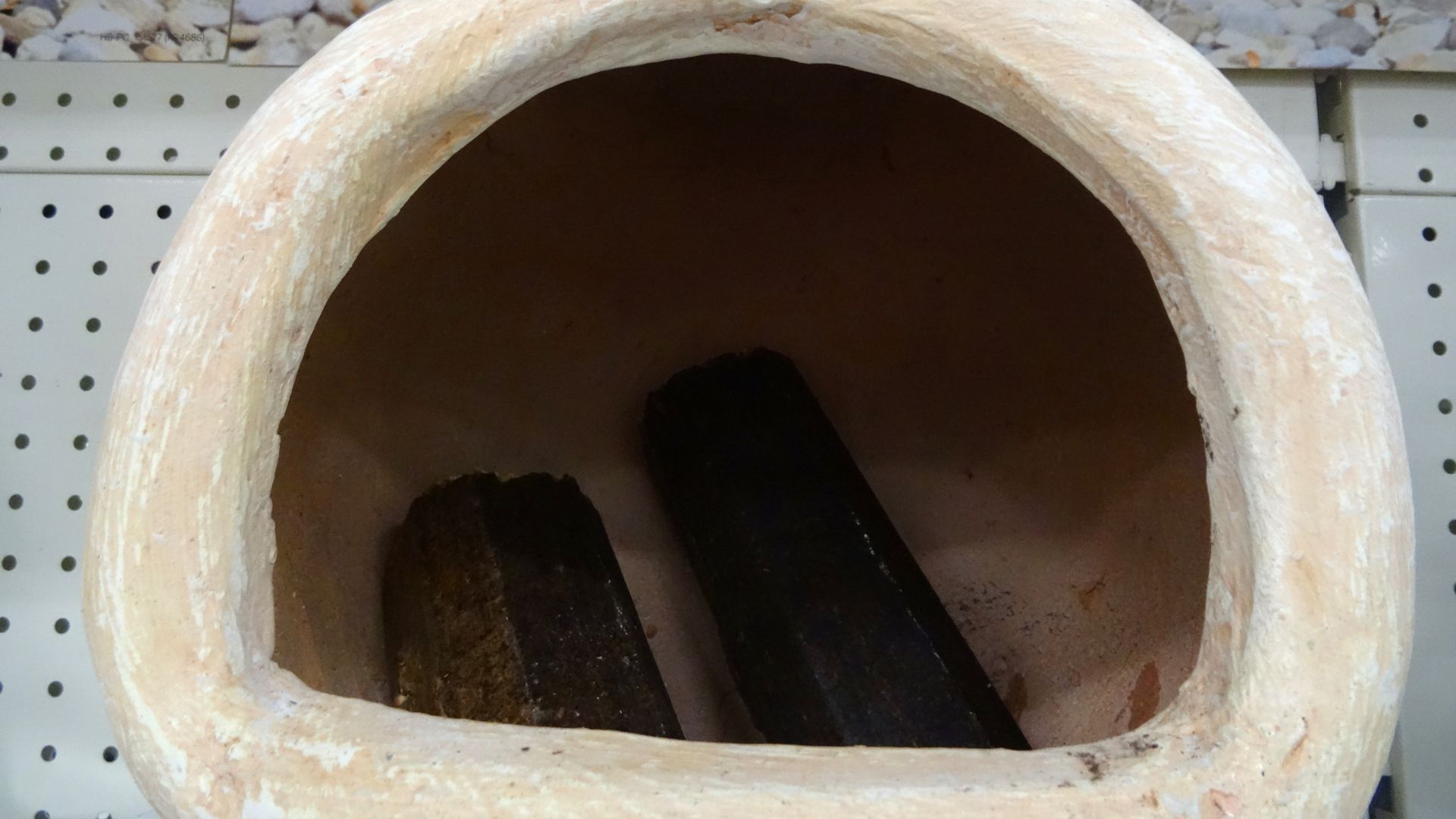
Now you've inspected the chiminea for any flaws or cracks it's time to get on with the cleaning. Due to the porous and rather sensitive surface of clay, there are some limits as to what you can use to clean it safely without causing damage.
Polya recommends using a soft brush or cloth to remove any dust, dirt and other debris. She explains, "In any case, avoid using abrasive tools or harsh chemicals that can damage the clay surface."
This is certainly something you shouldn't clean with baking soda or vinegar, the clay can be easily scratched and damaged so use a gentle hand when doing any kind of maintenance.
4. Clean the grill/grate
Some chimineas, particularly the clay variety, come with a cooking grill above or a protective grate to stop ash from flying everywhere. Having a protective grate is really important if you're using the chiminea in your outdoor living room and have soft furnishings nearby.
Polya says, "If your chiminea has a built-in grill or grate, clean it every time you use it to prevent the buildup of food particles and grease. You can usually do that by using a wire brush and mild dishwashing soap."
5. Rinse and dry
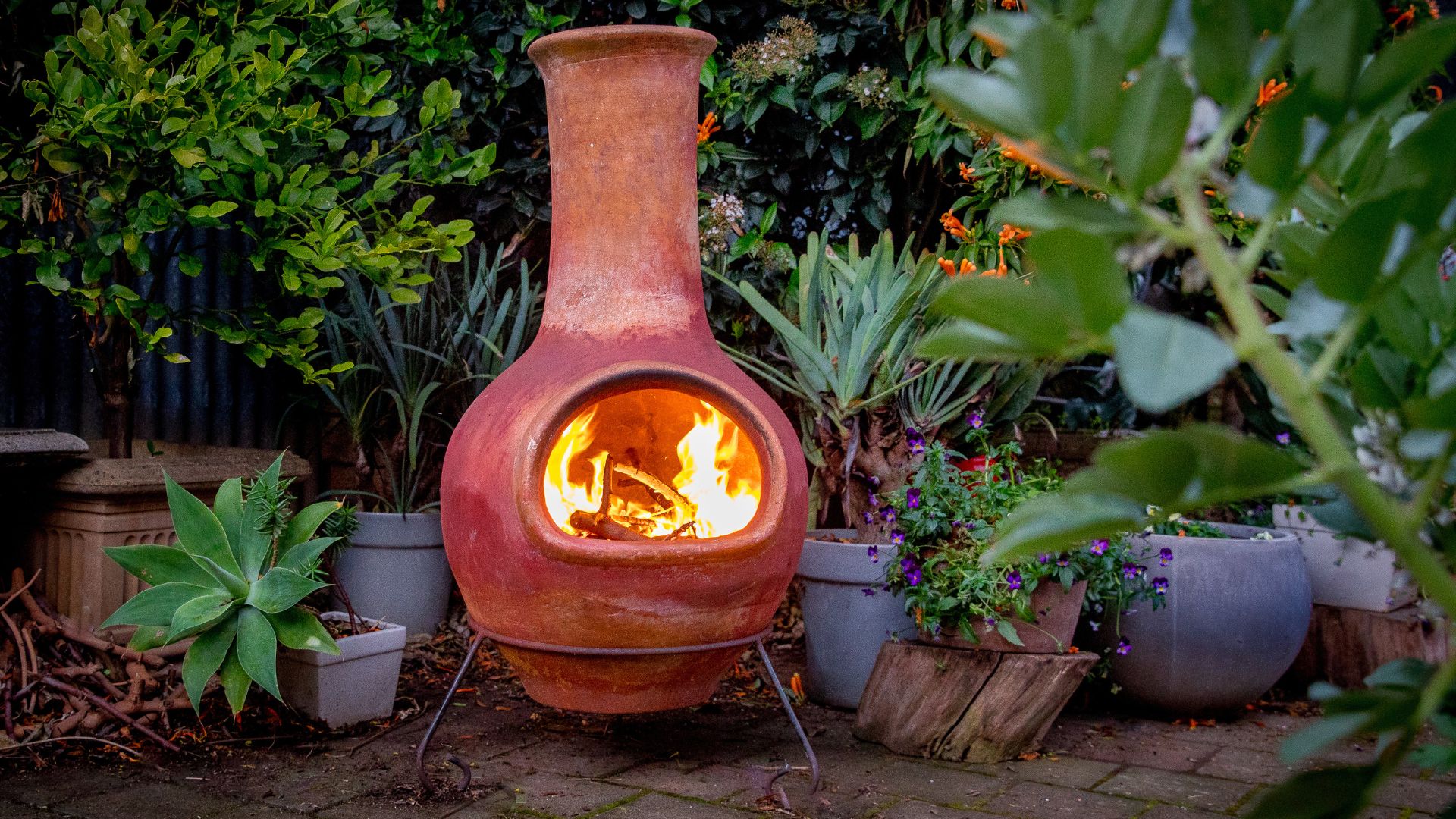
Make sure to thoroughly rinse the grates and the chiminea after you've cleaned them and allow them to dry completely before you put them back together and return the heating accessory to its designated spot.
Doing this regular cleaning will be essential to keeping your clay chiminea in the very best condition and to keep it functioning well for the longest amount of time.
FAQs
How often should you clean a chiminea?
Just like their cleaning methods are different the regularity of cleaning also depends on what kind of chiminea you have. You wouldn't clean your decking as much as you might clean an outdoor rug.
"For clay chimeneas, clean out ash and debris after every 2-3 uses, or at least once a month during the season you're using it regularly. Give it a more thorough clean with the bicarbonate of soda paste method about 2-3 times per year, or at the beginning and end of the season you use it most," says Catherine.
Cast iron chimineas on the other hand should have the ash and debris removed after every use. She explains, "This will prevent moisture building up and rusting. Then give it a more thorough cleaning with the wire brush and vinegar solution about once a month during regular use."
No matter how often you use your chiminea it's a good idea to give it a good clean at the start of the summer season when you know you'll be using it more often. Regular maintenance will also mean it lasts longer and continues to work at its best.
How to keep a chiminea clean between uses
As you would with your best outdoor furniture keeping them out of the worst weather conditions and regularly maintained is the only way to prolong their life in your garden.
"Regular maintenance is key in keeping your clay chiminea in good condition. After each use, allow it to cool completely before cleaning and protect it from extreme weather conditions by covering it when not in use or storing it indoors during the harsher seasons," says Catherine.
She continues, "Cast iron requires regular attention to prevent rust, so after each use, clean out ash and debris to prevent moisture accumulation. Then store the chimenea in a dry place or use a weatherproof cover when not in use."
Polya also recommends keeping fires small, extinguishing the fire correctly and using the correct fuel only. All these together will mean minimal damage to your chiminea and will keep it functioning at its best for much longer.
On top of the recommended maintenance, the experts suggest investing in a good chiminea-specific weather-proof cover – like this best-selling waterproof Dokon Large Chimenea Cover at Amazon. One that's both used for winter storage and for covering between uses, this is especially important for cast-iron chimineas.

Emily joined woman&home as a staff writer after finishing her MA in Magazine Journalism from City University in 2023. After writing various health and news content, she now specialises in lifestyle, covering unique cleaning hacks, gardening how-tos, and everything to help your houseplants thrive.
